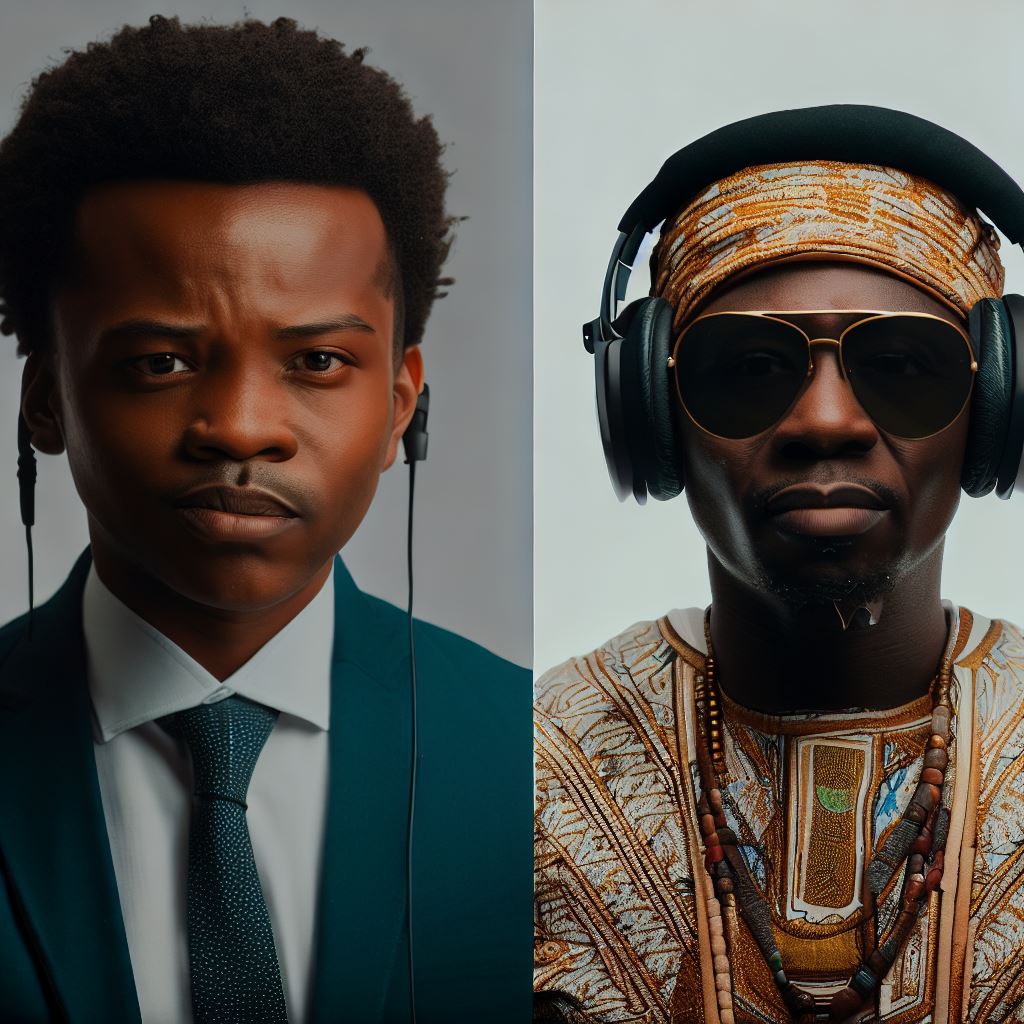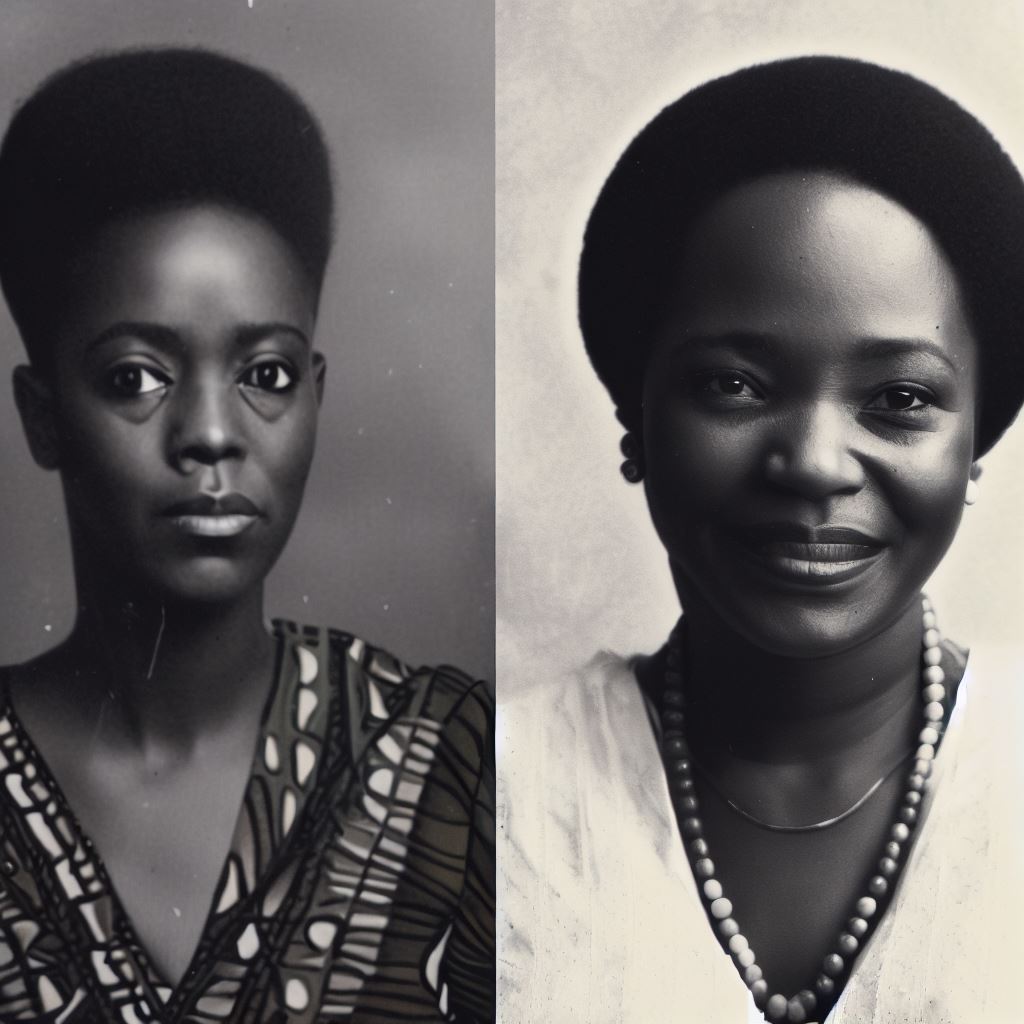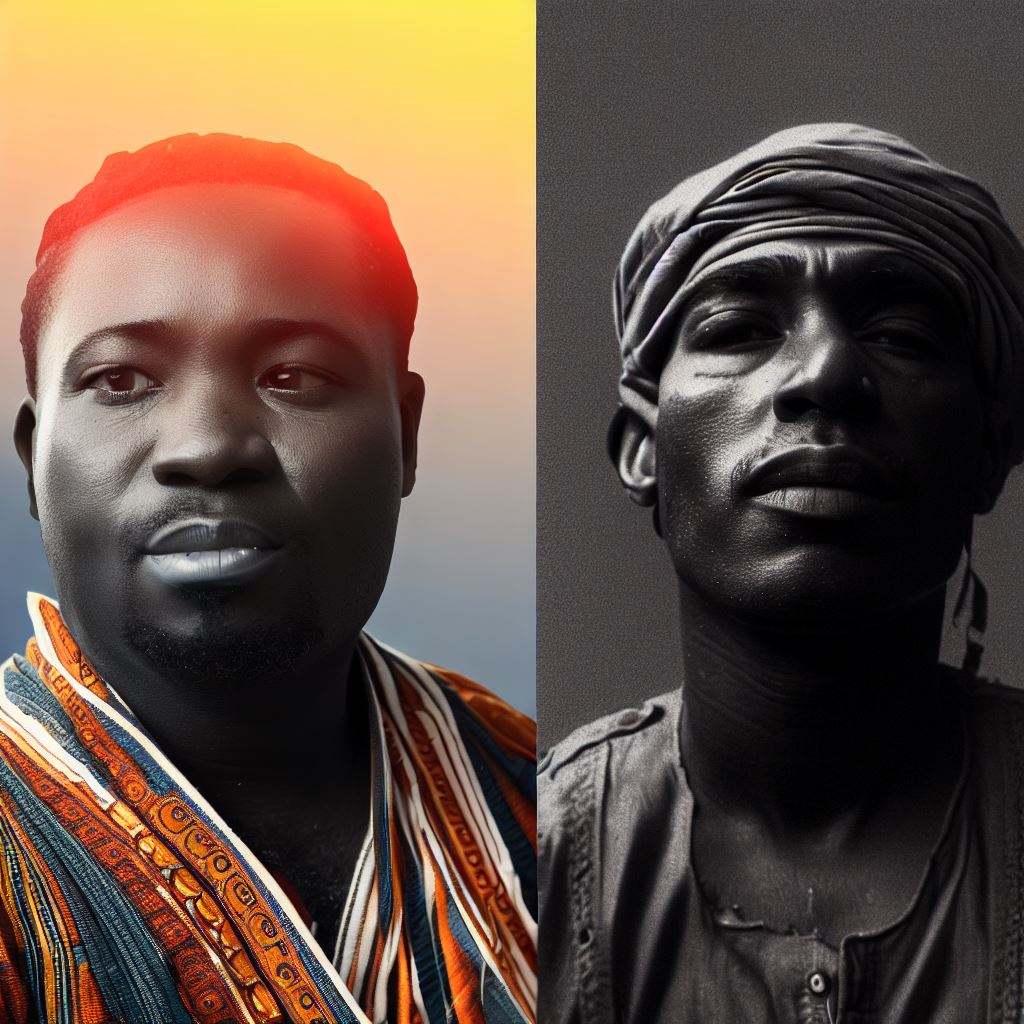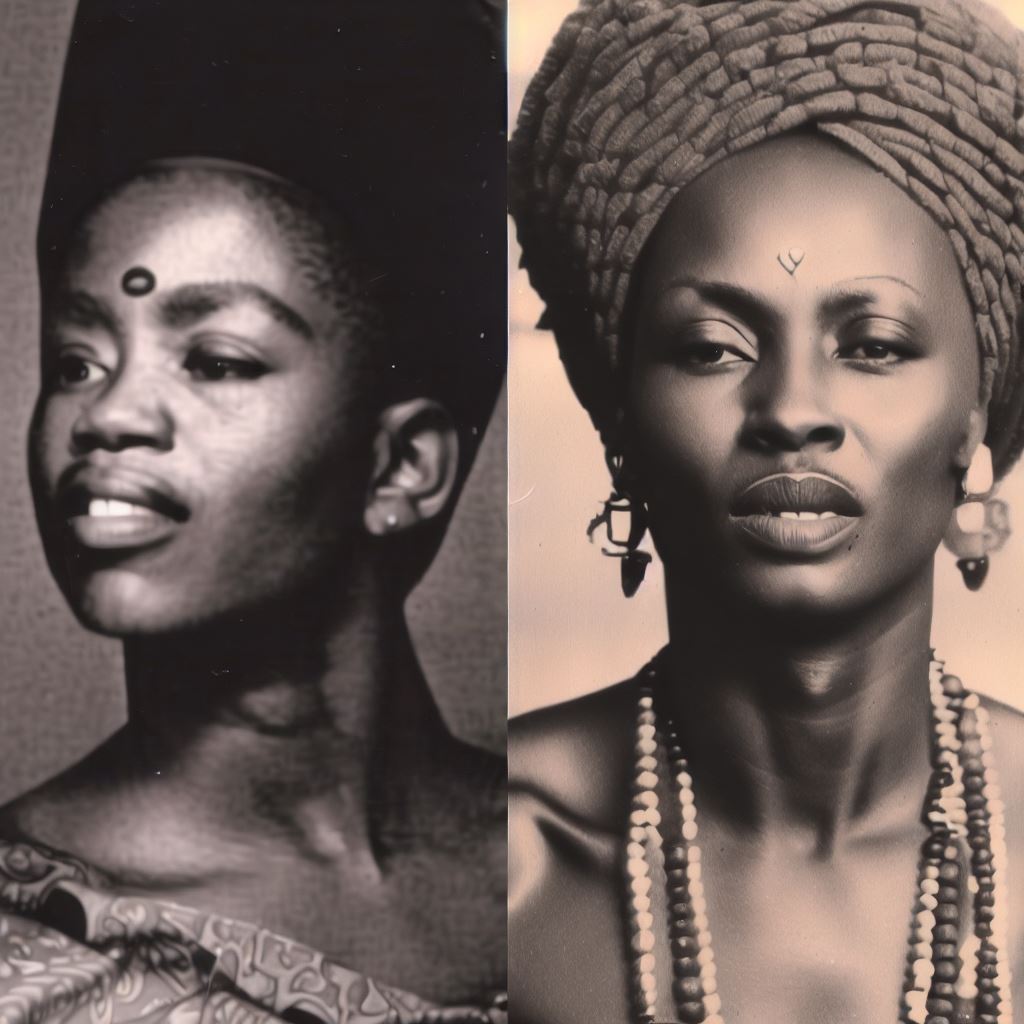Introduction
Let’s explore the changing trends in Nigerian film music.
Nigerian film music is an integral part of the country’s rich cultural heritage and has evolved over the years.
It encompasses various genres such as Highlife, Afrobeat, Juju, and Nollywood soundtracks.
Nigerian film music plays a significant role in enhancing the cinematic experience and capturing the emotions of the audience.
It creates a deeper connection between the viewers and the storyline, making the films more memorable.
The changing trends in Nigerian film music reflect the dynamic nature of the industry and the influence of global music trends.
These trends include the integration of contemporary genres, the rise of collaboration, and the use of innovative sound production techniques.
As the Nigerian film industry continues to grow, so does the impact and significance of its music.
The exploration of the evolving trends in this case will provide a comprehensive understanding of the industry’s creative evolution and its relevance in contemporary Nigerian culture.
Historical Background of Nigerian Film Music
The Emergence and Development of Nigerian Film Industry (Nollywood)
- Nigerian film industry, popularly known as Nollywood, emerged in the early 1990s.
- Nollywood is the second largest film industry in the world, producing a large number of films annually.
- The industry experienced significant growth due to a rise in local demand and advancements in technology.
- Nollywood films are made in several Nigerian languages, reflecting the country’s diverse cultural heritage.
- The emergence of Nollywood created a platform for Nigerian film music to thrive and evolve.
Roots of Nigerian Film Music in Traditional African Music
- Nigerian film music draws its roots from traditional African music, infused with modern elements.
- Traditional African music is characterized by the use of rhythmic patterns, percussions, and call-and-response vocals.
- Nigerian film music incorporates these elements to create a unique sound that reflects the culture and traditions of Nigeria.
- Traditional instruments such as talking drums and shekeres are often used in Nigerian film music compositions.
- The use of traditional African music in Nigerian films enhances the storytelling and creates an emotional connection with audiences.
Influences from Western and Bollywood Music
- Western music has had a significant influence on Nigerian film music since the colonial era.
- The introduction of Western musical instruments and styles added a new dimension to Nigerian film music.
- Nigerian filmmakers embraced Western music genres like jazz, highlife, and Afrobeat, infusing them into their films.
- Bollywood, the Indian film industry, has also played a role in shaping Nigerian film music.
- The popularity of Bollywood films in Nigeria has influenced the incorporation of Indian musical elements in it.
- The historical background of Nigerian film music showcases its evolution from traditional African roots to incorporating Western and Bollywood influences.
- The emergence of the Nigerian film industry (Nollywood) provided a platform for Nigerian film music to flourish.
- By incorporating traditional African music elements and embracing Western and Bollywood influences, It has created a unique and vibrant sound that adds depth and emotion to Nigerian films.
- This blend of cultural influences has contributed to the global recognition and success of Nigerian film music.
Read: Technology’s Role in Nigerian Film Composing
Traditional elements of Nigerian film music
Use of traditional African instruments and rhythms
Nigerian film music embraces the rich cultural heritage by utilizing traditional African instruments such as talking drums, shekere, and kalimba.
These instruments add a distinct and authentic sound to the music, creating a connection with the local audience.
Rhythms derived from various Nigerian tribes, such as the Yoruba, Igbo, and Hausa, are incorporated into the music.
The pulsating beats and syncopated rhythms create a lively and energetic atmosphere, enhancing the film’s narrative.
Incorporation of traditional folk songs and chants
Nigerian film music often features traditional folk songs and chants, reflecting the country’s diverse cultural tapestry.
These songs serve as a means of storytelling and express the emotions and experiences of the characters.
Lyrics are written in native languages and convey deep meanings rooted in Nigerian traditions and history.
The inclusion of folk songs and chants adds depth and authenticity to the cinematic experience, captivating the audience.
Role of Nigerian languages and cultural references
Nigerian film music recognizes the importance of preserving native languages and cultural references.
The lyrics of the songs often showcase local dialects, such as Yoruba, Igbo, and Hausa, celebrating linguistic diversity.
Cultural references, such as proverbs, idioms, and traditional beliefs, are woven into the songs, reinforcing cultural identity.
By incorporating our local languages and cultural references, film music becomes a tool for promoting cultural pride and awareness.
In fact, traditional elements play a significant role in Nigerian film music, enriching the cinematic experience and connecting with the audience on a cultural level.
The use of traditional African instruments and rhythms creates an authentic sound, while the incorporation of folk songs and chants adds depth and emotional resonance.
Nigerian languages and cultural references contribute to cultural preservation and identity.
As the Nigerian film industry continues to evolve, it is crucial to recognize and value these traditional elements, as they form an integral part of the nation’s rich musical heritage.
Read: Nigerian Film Composers: Challenges and Triumphs
Evolution of Nigerian film music
Influence of highlife, Afrobeat, and juju music genres
One of the key factors that shaped the evolution of Nigerian film music was the influence of highlife, Afrobeat, and juju music genres.
These genres provided the foundation for the development of a distinct Nigerian sound in film music.
Its infectious rhythms and catchy melodies resonated with audiences and became a popular soundtrack choice for Nigerian movies.
Afrobeat, a fusion of traditional music, jazz, and funk, also played a crucial role in shaping Nigerian film music.
Pioneered by the legendary Fela Kuti, Afrobeat songs were infused with social and political commentary, reflecting the realities of Nigerian society.
The energetic and vibrant nature of Afrobeat made it a perfect fit for the dynamic nature of film music.
Juju songs, on the other hand, added a unique flavor to it.
With its distinctive Yoruba rhythms and the use of traditional instruments like the talking drum and shekere, juju music became a popular genre in Nigerian movies.
Introduction of hip-hop, R&B, and reggae influences
As Nigerian film music evolved, it began to incorporate influences from other popular global genres such as hip-hop, R&B, and reggae.
This infusion of Western music styles brought a fresh and contemporary sound to Nigerian films.
The introduction of hip-hop into it brought a new wave of creativity.
Artists began to blend rap verses with traditional African beats, creating a unique and exciting sound.
This fusion not only appealed to Nigerian audiences but also gained international recognition.
Artists incorporated smooth and soulful melodies into their compositions, adding depth and emotion to the storytelling aspect of Nigerian movies.
Reggae, with its laid-back rhythms and socially conscious lyrics, found its way into the film music as well.
The genre’s messages of love, unity, and social justice resonated with the Nigerian audience and added a sense of authenticity to the films.
Integration of international music styles and fusions
Film music in nigeria continued to evolve by integrating international styles and fusing them with traditional Nigerian sounds.
This integration opened up new possibilities and expanded the creative landscape of Nigerian film music.
The influence of American pop songs, for example, became evident in Nigerian film soundtracks.
Artists began incorporating elements of pop into their compositions, creating a more commercial and accessible sound.
This helped film music sector to gain wider recognition and reach a broader audience.
Furthermore, the rise of globalization and technological advancements allowed Nigerian filmmakers to collaborate with international artists and incorporate diverse music styles into their films.
This cross-cultural exchange resulted in the creation of unique and eclectic soundtracks that reflected the multicultural nature of Nigerian society.
Basically, the evolution of Nigerian film music has been shaped by various factors.
The influence of highlife, Afrobeat, and juju music genres laid the foundation for a distinct Nigerian sound.
The introduction of hip-hop, R&B, and reggae brought fresh and contemporary influences.
Lastly, the integration of international music styles and fusions added new dimensions to film music in nigeria, making it a vibrant and diverse genre.
Read: The Evolution of Sound Effects Editing in Nigeria

Explore Further: Building a Career in Nigeria’s Animation Industry
Current trends in Nigerian film music
The rise of Afrobeats and Afro-fusion genres
- Afrobeats, a fusion of African music styles and western influences, has gained immense popularity in film music in nigeria.
- This genre incorporates elements of highlife, juju, and Afrobeat, creating a unique and infectious sound.
- Artists like Wizkid, Davido, and Burna Boy have become international sensations, taking Afrobeats to global stages.
- Afrobeats has brought a fresh and modern energy to the film industry, appealing to both local and international audiences.
- The success of Afrobeats has also opened doors for other Afro-fusion genres like Afro-pop and Afro-house to flourish.
Collaboration with international artists and exposure to global markets
- Nigerian film music has experienced a surge in collaborations between local artists and international stars.
- This trend has led to international exposure for Nigerian artists and an expansion of their fanbase.
- Collaborations with artists like Beyoncé, Drake, and Ed Sheeran have elevated the nation’s film to the global stage.
- These collaborations have also created opportunities for Nigerian artists to feature in major international films and soundtracks.
Incorporation of electronic music and dance elements
- Nigerian film music has embraced the incorporation of electronic music and dance elements in recent years.
- Artists are infusing elements of EDM, techno, and house music into their sound to create a more vibrant and contemporary feel.
- The integration of electronic music has resulted in infectious beats and catchy hooks that resonate with a younger audience.
- Dance elements, such as choreography and danceable rhythms, have become a crucial part of Nigerian film music videos.
- This fusion of electronic music and dance elements has brought a new level of entertainment and excitement to the genre.
In general, industry has undergone significant changes in recent years.
The rise of Afrobeats and Afro-fusion genres, collaboration with international artists, and the incorporation of electronic music and dance elements have transformed the landscape of film music industry .
These trends have not only propelled Nigerian artists to international fame but have also contributed to the globalization and diversification of the genre.
The future of Nigerian film music looks promising, with more exciting developments expected to come.
Read: Music Schools in Nigeria: Training Film Composers
Impact of changing trends on Nigerian film industry
Film music in nigeria has experienced a remarkable transformation in recent years.
As the industry, widely known as Nollywood, continues to grow and expand its reach, the impact of changing trends in the industry is becoming increasingly significant.
Increased popularity and recognition of Nigerian film music globally
One of the key effects of these changing trends is the increased popularity and recognition of Nigerian film music globally.
Nigerian musicians and composers are now gaining international acclaim for their contributions to film soundtracks.
This recognition not only elevates the status of it film music but also helps to promote the film industry as a whole on the global stage.
Influence on fashion, dance styles, and cultural representation
Fashion trends showcased in films and music videos have a direct impact on the fashion industry, both locally and internationally.
Nigerian styles and designs are increasingly influencing fashion choices and trends, giving rise to the term “Naija fashion” in some circles.
Dance styles showcased in Nigerian music videos have also gained global attention.
Afrobeat and other Nigerian dance styles have become popular worldwide, with artists like Burna Boy and Wizkid showcasing their unique dance moves in their music videos.
These dance styles not only entertain but also contribute to the promotion of Nigerian culture and identity.
Along with fashion and dance, the changing trends in the film music also shape cultural representation.
Nigerian films often portray the rich cultural heritage of the country, showcasing traditional practices, languages, and customs.
This representation helps to preserve Nigerian cultural heritage and promote cultural diversity on a global scale.
Potential challenges faced by traditional Nigerian music genres
However, these changing trends also present potential challenges for traditional Nigerian music genres.
As film music becomes more influenced by global genres like hip-hop and R&B, traditional music genres such as highlife and juju may face difficulties in maintaining their authenticity and cultural roots.
It is essential to strike a balance between incorporating modern influences and preserving traditional music styles to ensure the continued appreciation and recognition of Nigerian music heritage.
In review, the impact of changing trends in film music on it film industry cannot be underestimated.
The increased popularity and recognition of Nigerian film music globally, its influence on fashion, dance styles, and cultural representation, as well as the potential challenges faced by traditional music genres, all contribute to the dynamic landscape of the industry today.
Conclusion
Nigerian film music plays a crucial cultural role, as it serves as a medium to showcase the rich heritage and diversity of the country.
It helps to preserve traditional music styles and promotes Nigerian culture on a global scale.
Additionally, the success of this industry has created economic opportunities, with artists and composers gaining recognition and financial rewards.
This can be achieved through supporting local artists, attending events, and actively seeking out related soundtracks.
By doing so, we not only contribute to the growth of the Nigerian music industry but also foster a deeper understanding and appreciation of its cultural and artistic significance.
In a nutshell, Nigerian film music has undergone tremendous changes, and its cultural and economic importance cannot be overstated.
By continuing to explore and appreciate this unique genre, we contribute to its growth and ensure its lasting impact on Nigerian culture and the global music landscape.




